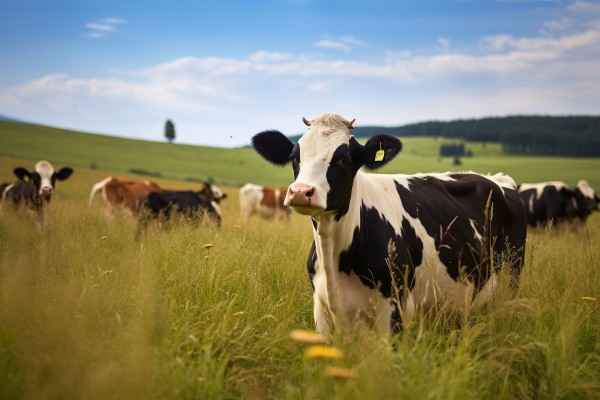In the family of “micro-nutrients”, trace elements hold a crucial role. Despite being termed “trace”, their impact is extraordinary. These elements are vital for animal growth, metabolism, reproduction, immunity, and skin health.

For many years, trace element nutrients in animal feed mainly come from traditional inorganic salts like copper sulfate and zinc sulfate, known as the first generation of trace element additives. However, these inorganic salts face issues such as poor stability and low biological availability. They can damage active substances like vitamins in the feed and interact with fibers, phytic acid, tannins, oxalic acid, or other minerals in the animal’s gastrointestinal tract, which hinders their absorption. Additionally, excess unabsorbed trace elements are expelled with animal waste, leading to environmental pollution.

The second generation of trace element additives includes basic organic acid salts like ferrous citrate and ferrous fumarate. While these have shown some improvement over the first generation, they still have antagonistic actions with certain nutrients, have a low biological utilization rate, and their effectiveness remains relatively modest.

The third generation of trace element additives consists of amino acid-chelated trace elements. In these additives, trace elements are bound to amino acids, forming a stable complex. Since amino acids are easily absorbed by the intestines, the trace elements are “smuggled” into the bloodstream and body fluids along with them. This method enhances the stability, palatability, digestibility, and biological effectiveness of the trace elements, and improves their absorption and utilization. Additionally, these additives boost disease resistance, stress resilience, immunity, and antioxidant activity, while also reducing environmental pollution. They represent an efficient trace element product.
As environmental protection has gained more focus from both the government and society in recent years, amino acid-chelated trace elements are increasingly being used due to their higher biological efficacy and environmental friendliness. NHU, a leader in animal nutrition and health, is dedicated to researching the replacement and efficient absorption of amino acid-chelated trace elements in place of inorganic trace elements. This aims to decrease the amount of trace elements needed in feed and reduce their content in animal excretion.

NHU’s Sandimet Methionine Complex (Chelate) utilizes methionine, an essential amino acid, as the ligand and is distinguished by its all-organic, double-chelated structure and high biological efficacy. This makes it a dependable solution for enhancing the quality and efficiency of livestock and poultry farming. The Sandimet® Methionine Complex with Zinc/Copper/Manganese features a stable structure, high chelating purity, resistance to clumping, and absence of residual chlorine and sulfate ions. It offers the benefits of a single additive providing dual nutrition, which helps reduce mineral emissions in animal waste, and supports the green development of the animal farming industry.
Media Contact
Company Name: Lingrong Culture
Contact Person: Wang Yurong
Email: Send Email
Phone: 2134007851
Address:3185 Wilshire blvd
City: Los Angeles
State: CA
Country: United States
Website: www.lingrongculture.com
